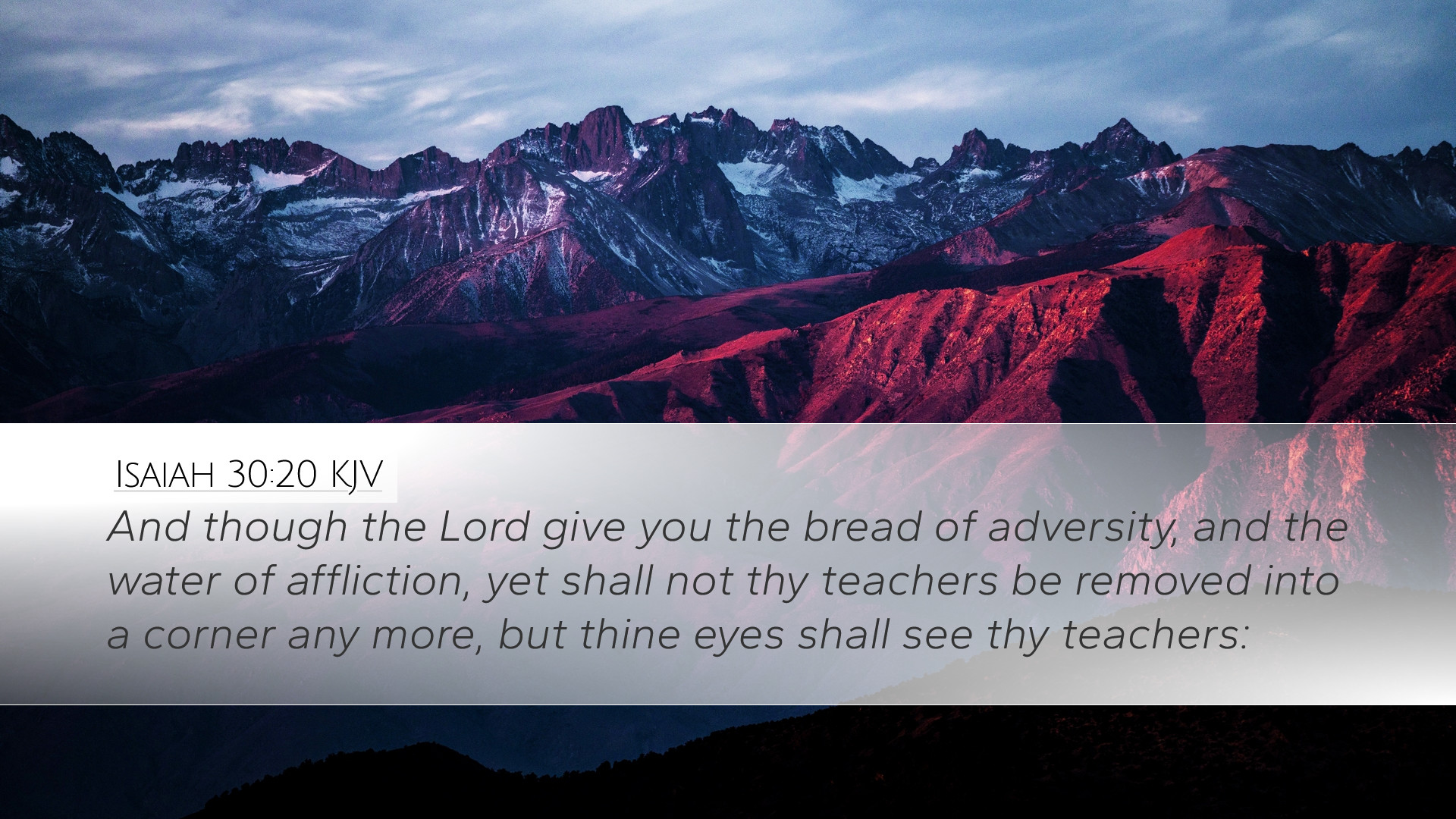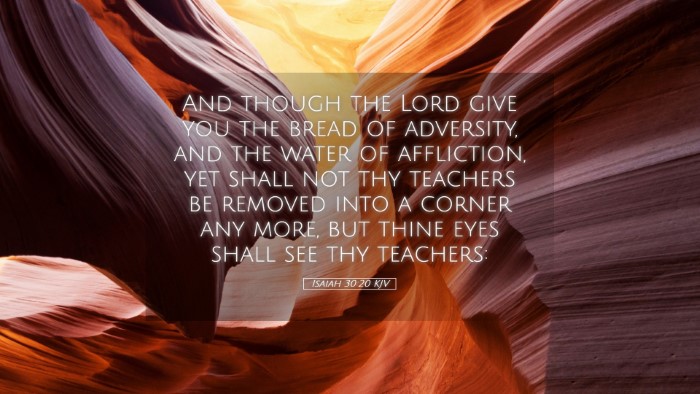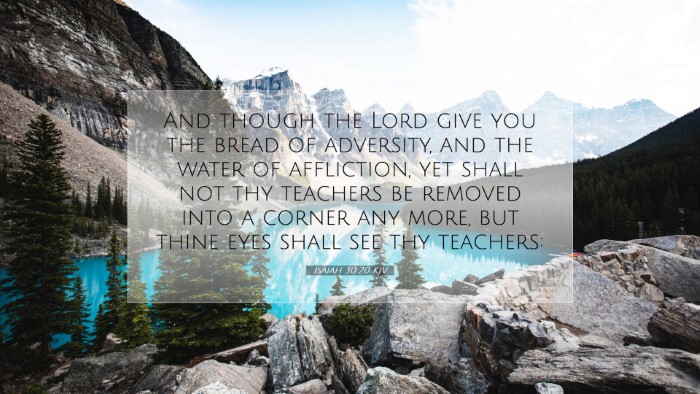Commentary on Isaiah 30:20
Isaiah 30:20 (KJV): "And though the Lord give you the bread of adversity, and the water of affliction, yet shall not thy teachers be removed into a corner any more, but thine eyes shall see thy teachers."
Introduction
The verse under consideration reflects a significant period in Israel's history when they were facing dire circumstances, primarily due to their reliance on foreign alliances rather than on God. A careful exploration of the text allows for deeper insights into the character of God and His intention for His people, particularly in the context of hardships. This commentary draws on the insights provided by Matthew Henry, Albert Barnes, and Adam Clarke.
Contextual Background
Isaiah prophesied during a tumultuous time for the Kingdom of Judah, grappling with threats from Assyria and internal struggles. The preceding chapters provide a vivid backdrop of rebellion against God and misplaced trust in human alliances. Into this setting, Isaiah speaks a message of God’s continued instruction and presence, despite the adversity that serves as both discipline and a means to revelation.
Verse Breakdown
- “Though the Lord give you the bread of adversity”: This phrase captures the essence of human experience under God’s sovereign hand. Matthew Henry reflects that adversities, akin to the sustenance one needs, are ordained by God for growth and humility.
- “And the water of affliction”: Albert Barnes emphasizes the cleansing and purging aspect of affliction. Just as water nourishes and refreshes, so too can affliction be instrumental in spiritual renewal.
- “Yet shall not thy teachers be removed into a corner any more”: Clarke posits that God’s provision of teachers and guidance ensures that His people are never left without direction. Even amidst trials, God's presence and instruction remain accessible.
- “But thine eyes shall see thy teachers”: This is a promise of clarity and revelation that will come to God’s people. Henry notes that this visibility is not just physical but spiritual, as God reveals truth to those who feel lost in their affliction.
Theological Insights
This passage resonates with the theological themes of grace and divine instruction amid trials. The consistent provision of God’s teaching presence underscores His faithfulness, even when His people stray or face hardships. As Barnes articulates, God's teachers—prophets, priests, and leaders—are instruments of His grace in both times of adversity and peace, guiding the faithful towards greater understanding and reliance on God.
Pastoral Application
This verse challenges pastors to recognize the importance of teaching and guiding amidst congregational struggles. It serves as a reminder to provide sustenance through biblical teaching, especially in times of suffering. The assured presence of teachers suggests that God’s word should continually resonate within the community, encouraging believers to find hope and direction even when circumstances seem grim.
Practical Implications for Believers
- Embrace Adversity: Believers are encouraged to see adversity not merely as punishment but as a divine opportunity for growth. By embracing the trials of life, they become more receptive to God’s teaching.
- Seek Guidance: The promise that “thine eyes shall see thy teachers” prompts believers to actively seek spiritual guidance amidst their struggles. Participation in church life and investment in spiritual resources can provide much-needed clarity.
- Trust in God’s Provision: Understanding that God uses challenging circumstances to refine faith helps believers to navigate tough times with hope. His provision—both physical and spiritual—is always present, leading them through distress.
Conclusion
Isaiah 30:20 provides profound insights into the relationship between adversity, divine instruction, and spiritual growth. By drawing on the wisdom of past commentators, this analysis encourages a deeper understanding of how God uses life's hardships to draw His people closer to Him. The promise that teachers will be present helps to assure believers that they are never alone, and that God is always speaking—drawing them toward a richer experience of His grace and presence, even in the midst of struggle.


